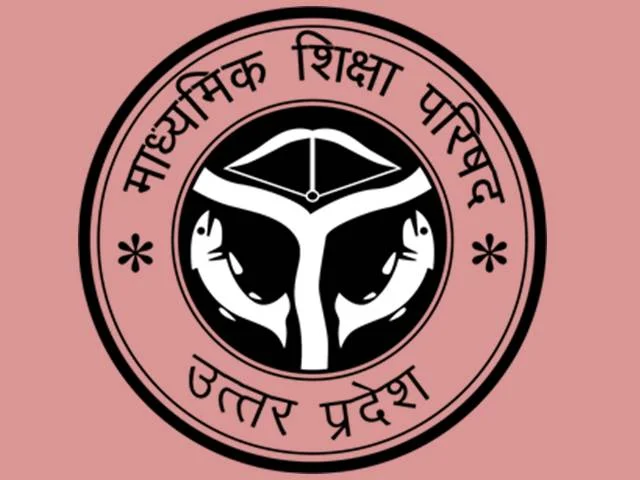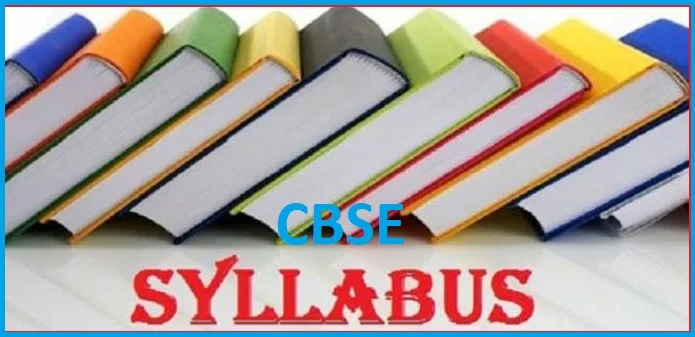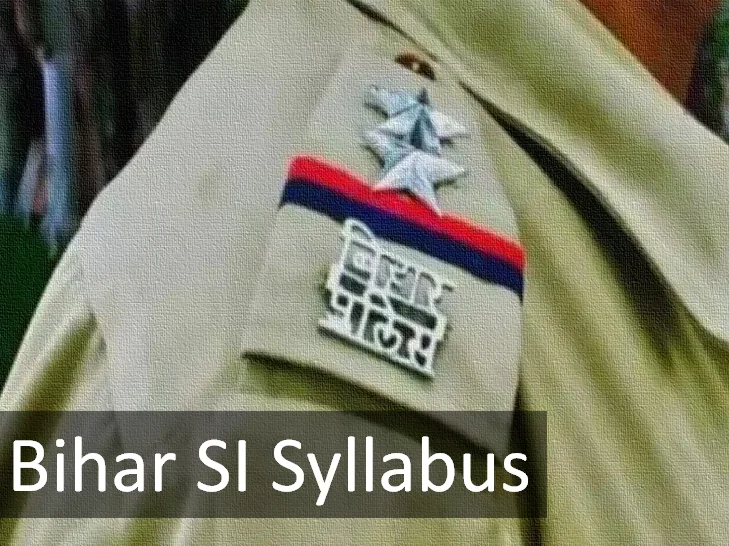UGC NET Syllabus 2024: Detailed Subject-Wise Syllabus of Paper – I and Paper – II

The UGC NET syllabus 2024 is an important resource for those preparing to take the National Eligibility Test (NET) conducted by the National Testing Agency (NTA) on behalf of the University Grants Commission (UGC). The syllabus provides a comprehensive outline of the topics and sub-topics that will be covered in the exam. It will help students to understand what to expect and plan their studies accordingly.
With its detailed coverage of the exam’s scope and structure, the UGC syllabus is a must-have for all aspiring NET test-takers. In this post, we will discuss the different topics covered under the UGC NET syllabus. We will also provide some tips and resources to help you prepare for the exam. So, let us dive right in and explore the topics.
Overview of UGC NET Syllabus 2024
The UGC NET exam consists of two papers, Paper I (50 questions, 100 marks), and Paper II (200 marks). Both the papers are taken on the same day and without breaks.
Paper I is the same for everyone who takes the exam, and applicants can choose Paper II based on their subject expertise. For better exam preparation, candidates can review the entire UGC NET syllabus and plan their studies accordingly.
It is essential to have a thorough understanding of the NET syllabus because it enhances your preparation and enables you to devise a study strategy, which is essential for passing any exam. Here is the overview of the syllabus.
| Name of the exam | National Eligibility Test (NET) |
| Exam Conducting Authority | National Testing Agency (NTA) |
| Examination Mode | Online |
| Authority releasing the syllabus | University Grants Commission (UGC) |
| Number of Paper | 2 |
| Number of Questions | 150 (50 questions in Paper and 100 Questions in Paper 2) |
| Duration of exam | 3 hours |
| Negative Marking | No |
Check: BPSC syllabus
UGC NET Exam Pattern
To understand the syllabus in a better way, you should know the UGC exam pattern. It is an online exam and only Multiple Choice Questions will be asked in the same. The duration of this exam is 3 hours. The detailed pattern of both Paper – 1 and Paper – 2 is as follows.
| Paper | Number of questions | Marks |
| Paper – 1 (Generic questions to assess the teaching/ research aptitude of the candidate) | 50 | 100 |
| Paper – 2 (to check the subject knowledge of a candidate) | 100 | 200 |
| Total | 150 questions | 300 marks |
Note: There is no negative marking.
UGC NET Paper – 1 Syllabus
The main objective of UGC NET Paper – I Syllabus PDF is to assess the teaching and research abilities of a candidate. Check the section-wise distribution of the number of questions and marks in Paper – 1.
| Section | Number of Questions | Total Marks |
| Teaching Aptitude | 5 | 10 |
| Research Aptitude | 5 | 10 |
| Reading Comprehension | 5 | 10 |
| Communication | 5 | 10 |
| Reasoning (Including Mathematical) | 5 | 10 |
| Logical Reasoning | 5 | 10 |
| Data Interpretation | 5 | 10 |
| Information and Communication Technology (ICT) | 5 | 10 |
| People and Environment | 5 | 10 |
| Higher Education System: Governance, Polity, and Administration | 5 | 10 |
| Total | 50 Questions | 100 Marks |
Unit Wise Detailed Syllabus of UGC NET Paper 1
Unit – 1 – Teaching Aptitude Syllabus
- Teaching: Concept, Objectives, Levels of teaching (Memory, Understanding and Reflective), Characteristics and basic requirements.
- Learner’s characteristics: Characteristics of adolescent and adult learners (Academic, Social, Emotional and Cognitive), Individual differences.
- Factors affecting teaching related to Teacher, Learner, Support material, Instructional facilities, Learning environment and Institution.
- Methods of teaching in Institutions of higher learning: Teacher centred vs. Learner-centred methods; offline vs. Online methods (Swayam, Swayamprabha, MOOCs etc.).
- Teaching Support System: Traditional, Modern and ICT based.
- Evaluation Systems: Elements and Types of evaluation, Evaluation in Choice Based Credit System in Higher education, Computer-based testing, Innovations in evaluation systems.
Unit – 2: Research Aptitude
- Research: Meaning, types, and characteristics
- positivism and post-positivist approaches to research
- Methods of research: Experimental, descriptive, historical, qualitative, and quantitative methods
- Steps of research
- Thesis and article writing: Format and styles of referencing
- Application of ICT in research
- Research ethics
Check: SSC JE syllabus
Unit – 3: Comprehension
- A passage to be set with questions to be answered
Unit – 4: Communication
- Communication: Nature, Characteristics, types, barriers and effective classroom communication
Unit – 5: Reasoning
- Number Series, letter series, codes
- Relationships, classification
Unit – 6: Logical Reasoning
- Understanding the structure of arguments: Argument forms, the structure of categorical propositions, mood and figure, formal and informal fallacies, uses of language, connotations, and denotations of terms, the classical square of opposition.
- Evaluating and distinguishing deductive and inductive reasoning
- Analogies
- Venn diagram: Simple and multiple uses for establishing the validity of arguments
- Indian Logic: Means of knowledge
- Pramanas: Pratyaksha (Perception), Anumana (Inference), Upamana (Comparison), Shabda (Verbal testimony), Arthapatti (Implication), and Anupalabddhi (Non-apprehension)
- Structure and kinds of Anumana (inference), Vyapti (invariable relation), Hetvabhasas (fallacies of inference)
Unit – 7: Data Interpretation
- Sources, acquisition, and classification of data
- Quantitative and qualitative data
- Graphical representation (bar chart, histograms, pie chart, table chart, and line chart) and mapping of data
- Data interpretation
- Data and governance
Unit – 8: Information and Communication Technology (ICT)
- ICT: General abbreviations and terminology
- Basics of the Internet, Intranet, E-mail, Audio, and Video-conferencing
- Digital initiatives in higher education
- ICT and Governance
Unit – 9: People, Development and Environment
- Development and environment: Millennium development and Sustainable development goals
- Human and environment interaction: Anthropogenic activities and their impacts on the environment
- Environmental issues: Local, regional and global; air pollution, water pollution, soil pollution, noise pollution, waste (solid, liquid, biomedical, hazardous, electronic), climate change and its socio-economic and political dimensions
- Impacts of pollutants on human health
- Natural and energy resources: Solar, Wind, Soil, Hydro, Geothermal, Biomass, Nuclear, and Forests
- Natural hazards and disasters: Mitigation strategies
- Environmental Protection Act (1986), National Action Plan on Climate Change, International agreements/efforts -Montreal Protocol, Rio Summit, Convention on Biodiversity, Kyoto Protocol, Paris Agreement, International Solar Alliance
Unit – 10: Higher Education System
- Institutions of higher learning and education in ancient India
- Evolution of higher learning and research in post-independence India
- Oriental, conventional, and non-conventional learning programs in India
- Professional, technical, and skill-based education
- Value education and environmental education
- Policies, governance, and administration
UGC NET Paper – 2 Syllabus
The subject that applicants selected when they filled out the application is included in the UGC NET Syllabus for Paper 2. The syllabus for the UGC NET cycle has been prescribed by the University Grants Commission (UGC) for 83 subjects. There will be 100 multiple-choice questions based on the candidate’s choice of subject.
Candidates can review the subject-specific UGC NET Paper 2 Syllabus PDF, which includes the commission’s detailed syllabus. The table below provides the direct download link for the syllabus PDF.
Check: B. Pharma syllabus
| Subject Code | Name of the Subject | Link to download PDF of the syllabus |
| 01 | Economics / Rural Economics /Co-operation / Demography / Development Planning/ Development Studies/Econometrics/ Applied Economics/Development Eco./Business Economics | Check Now |
| 02 | Political Science | Check Now |
| 03 | Philosophy | Check Now |
| 04 | Psychology | Check Now |
| 05 | Sociology | Check Now |
| 06 | History | Check Now |
| 07 | Anthropology | Check Now |
| 08 | Commerce | Check Now |
| 09 | Education | Check Now |
| 10 | Social Work | Check Now |
| 11 | Defence and Strategic Studies | Check Now |
| 12 | Home Science | Check Now |
| 14 | Public Administration | Check Now |
| 15 | Population Studies | Check Now |
| 16 | Music | Check Now |
| 17 | Management (including Business Admn. Mgt./Marketing/ Marketing Mgt./Industrial Relations and Personnel Mgt./ Personnel Mgt./Financial Mgt./Co-operative Management) | Check Now |
| 18 | Maithili | Check Now |
| 19 | Bengali | Check Now |
| 20 | Hindi | Check Now |
| 21 | Kannada | Check Now |
| 22 | Malayalam | Check Now |
| 23 | Oriya | Check Now |
| 24 | Punjabi | Check Now |
| 25 | Sanskrit | Check Now |
| 26 | Tamil | Check Now |
| 27 | Telugu | Check Now |
| 28 | Urdu | Check Now |
| 29 | Arabic | Check Now |
| 30 | English | Check Now |
| 31 | Linguistics | Check Now |
| 32 | Chinese | Check Now |
| 33 | Dogri | Check Now |
| 34 | Nepali | Check Now |
| 35 | Manipuri | Check Now |
| 36 | Assamese | Check Now |
| 37 | Gujarati | Check Now |
| 38 | Marathi | Check Now |
| 39 | French (French Version) | Check Now |
| French (English Version) | Check Now | |
| 40 | Spanish | Check Now |
| 41 | Russian | Check Now |
| 42 | Persian | Check Now |
| 43 | Rajasthani | Check Now |
| 44 | German | Check Now |
| 45 | Japanese | Check Now |
| 46 | Adult Education/ Continuing Education/ Andragogy/ Non Formal Education. | Check Now |
| 47 | Physical Education | Check Now |
| 49 | Arab Culture and Islamic Studies | Check Now |
| 50 | Indian Culture | Check Now |
| 55 | Labour Welfare/Personnel Management/Industrial Relations/ Labour and Social Welfare/Human Resource Management | Check Now |
| 58 | Law | Check Now |
| 59 | Library and Information Science | Check Now |
| 60 | Buddhist, Jaina, Gandhian and Peace Studies | Check Now |
| 62 | Comparative Study of Religions | Check Now |
| 63 | Mass Communication and Journalism | Check Now |
| 65 | Performing Art – Dance/Drama/Theatre | Check Now |
| 66 | Museology & Conservation | Check Now |
| 67 | Archaeology | Check Now |
| 68 | Criminology | Check Now |
| 70 | Tribal and Regional Language/Literature | Check Now |
| 71 | Folk Literature | Check Now |
| 72 | Comparative Literature | Check Now |
| 73 | Sanskrit traditional subjects (including) Jyotisha/Sidhanta Jyotish/ Navya Vyakarna/ Vyakarna/ Mimansa/ Navya Nyaya/ Sankhya Yoga/ Tulanatmaka Darsan/ Shukla Yajurveda/ Madhav Vedant/ Dharmasasta/ Sahitya/ Puranotihasa /Agama). | Check Now |
| 74 | Women Studies | Check Now |
| 79 | Visual Art (including Drawing & Painting/Sculpture Graphics/Applied Art/History of Art) | Check Now |
| 80 | Geography | Check Now |
| 81 | Social Medicine & Community Health | Check Now |
| 82 | Forensic Science | Check Now |
| 83 | Pali | Check Now |
| 84 | Kashmiri | Check Now |
| 85 | Konkani | Check Now |
| 87 | Computer Science and Applications | Check Now |
| 88 | Electronic Science | Check Now |
| 89 | Environmental Sciences | Check Now |
| 90 | Politics including International Relations/International Studies including Defence/Strategic Studies, West Asian Studies, South East Asian Studies, African Studies, South Asian Studies, Soviet Studies, American Studies. | Check Now |
| 91 | Prakrit | Check Now |
| 92 | Human Rights and Duties | Check Now |
| 93 | Tourism Administration and Management. | Check Now |
| 94 | Bodo | Check Now |
| 95 | Yoga | Check Now |
| 101 | Sindhi | Check Now |
Tips to Prepare for UGC NET Examination
Preparing for the UGC NET Exam can be a daunting task, but with the right tips and strategies, you can make your journey to success much easier.
- Start by creating a study plan that includes a timeline and goals.
- Make sure to allocate enough time to cover all the topics and practice test questions.
- It is important to stay organized and keep track of all the material you are studying.
- Make sure to take regular breaks and get enough rest so that you are well-rested and alert for the exam.
- Try to stay positive and motivated throughout the process.
- It is essential to practice as much as possible to ensure you are familiar with the exam format and the types of questions that will be asked.
Frequently Asked Questions
No, there are no changes in the syllabus
UGC Prescribes the syllabus for UGC Net.
Yes, it is a tough exam. However, with proper planning and studies, you can clear it with ease.
https://ugcnet.nta.nic.in/




